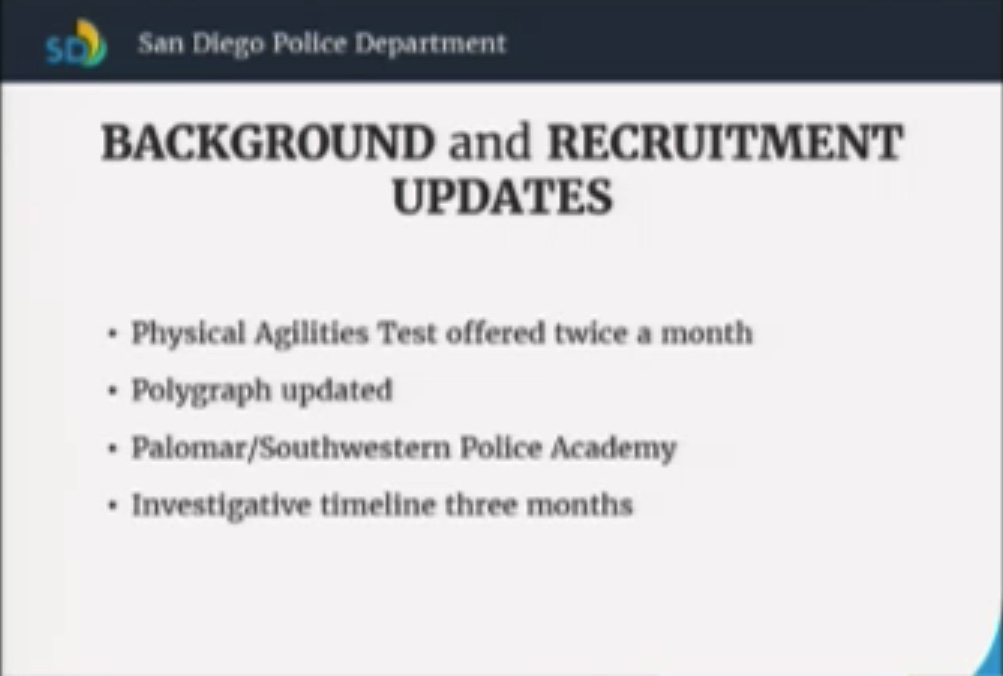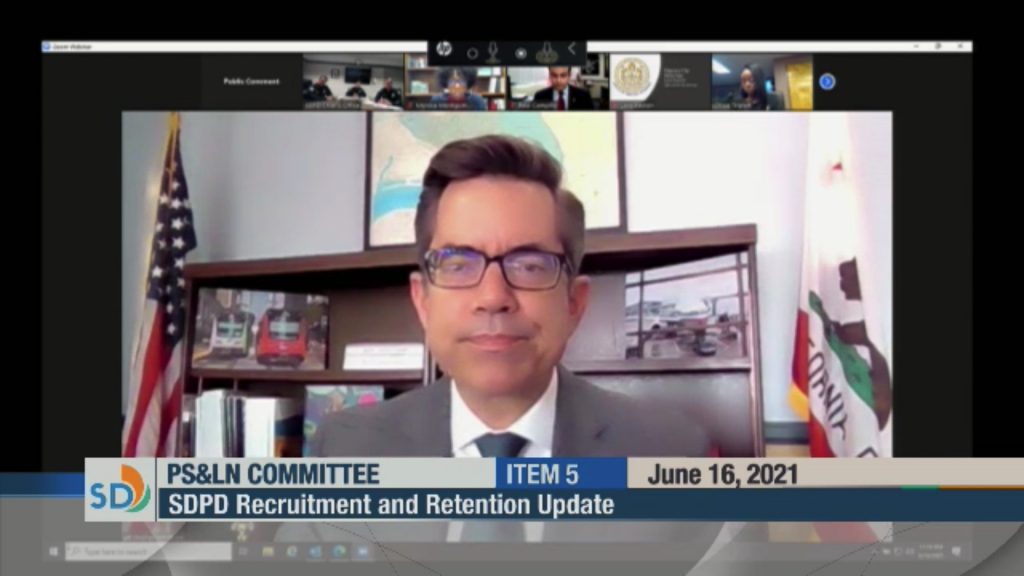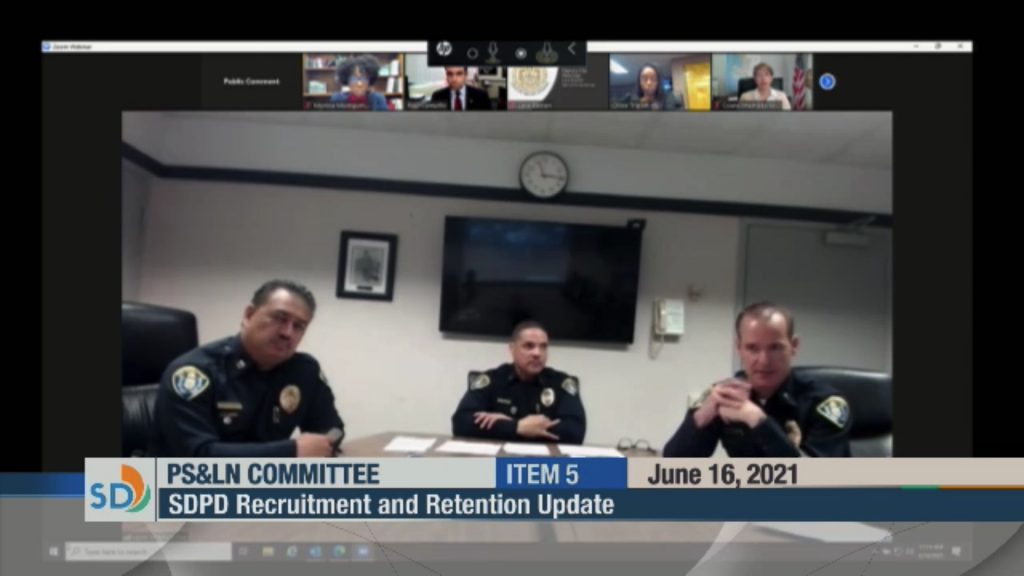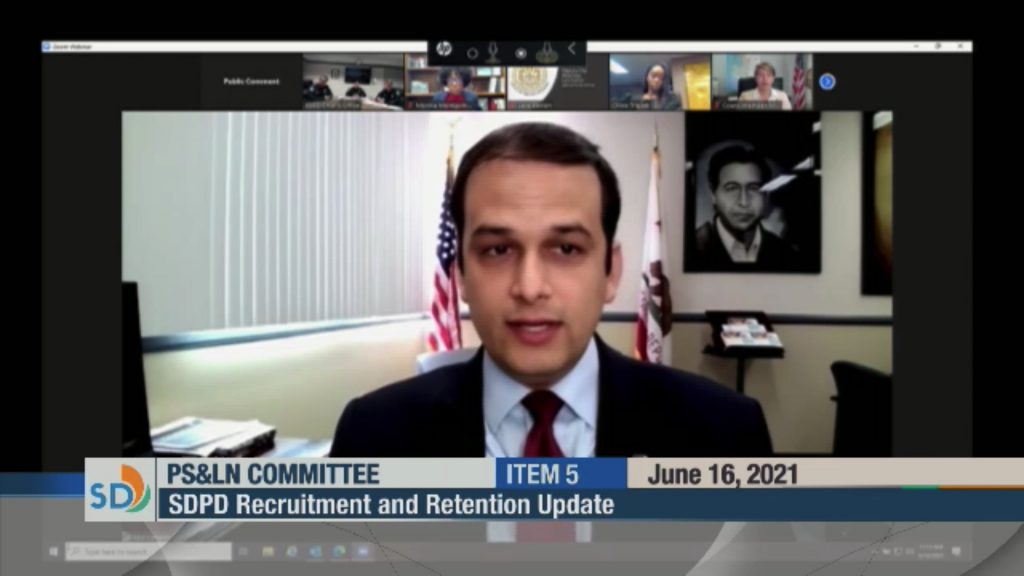At a meeting of the San Diego City Council’s Public Safety and Livable Neighborhoods Committee held on 16 June 2021, Captain Rudy Tai of the San Diego Police Department (SDPD) mentioned that the pre-employment polygraph screening process now includes questioning about hate crimes and racial bias. As part of a “Recruitment and Retention Update” Tai told the committee:
As far as our polygraph update, what we notice is we meet with our polygraphers—our polygraphers are in-house—we meet with them once a quarter, just to make sure that we’re all on the same page. As we see issues coming up nationwide, take for example we wanted to make sure we were capturing questions in the polygraph that have to do with hate incidents, hate crimes, any biases a person may have, any associations they may have—on social media—make sure we capture that within the polygraph process.
In response, Councilmember Raul Campillo asked:
I do have a question about the one slide put—about the steps that go through—the polygraph test. I’m just curious what questions are asked on the polygraph test.

SDPD Lieutenant Steve Waldheim responded without actually disclosing precisely what questions are asked:
So, regarding the polygraph, they ask a plethora of questions. So, they actually break it down into four different categories, and they break it down into drugs, serious crimes, again what we added there was pertaining to any uh racial uh anything to that, that uh basically any bias, things like that, so they ask just about anything and everything on the polygraph. So they cover a lot. Usually it takes at least two hours to go over with a polygrapher, um, and they ask just about everything. And they reiterate, again, with our background detectives, we meet with them before, and we have pre-polygraph interview with the background detective. They go over all the questions, again, and they are getting asked on the pre-investigative questionnaire and the personal history statement. So we ask just about everything. And then they confirm that on the polygraph with them hooked up on the machine.
Councilmember Campillo responded:
Okay. Understood. I’m glad to hear that issues of the bias, it, whether they’re racial, social, gender, of all sorts, I, I, I’m glad to hear that. It’s a concern of mine, and we’ve be—know we want to continue to, to find and prevent folks who do have those sorts of biases from being able to be part of law enforcement just because of how much—how important the role is in criminal justice. I was gonna ask if—when we have a police officer transfer from a different department, from a different agency, maybe I should say, into SDPD, do they go through that same polygraph test as well?
To which Lt. Waldheim replied:
Yes sir, they do. They all go through the same polygraph. They all go through the same background investigation.
On 20 June 2021, AntiPolygraph.org co-founder George Maschke wrote to Councilmember Raul Campillo regarding the inadequacy of Lieutenant Steve Walheim’s reply and asked, among other things, whether he would support polygraph screening of applicants for employment with the San Diego city attorney’s office (his former employer):
Dear Councilmember Campillo,
I write for AntiPolygraph.org, a non-profit, public interest website dedicated to polygraph policy reform. I listened with interest to the discussion of polygraph policy at last week’s meeting of the Public Safety and Livable Neighborhoods Committee and am preparing to publish an article that will quote your question about that.
At that meeting, you expressed satisfaction with Lt. Steve Waldheim’s reply that the police department’s polygraph screening process includes questions about racial bias. However, Lt. Waldheim actually dodged your question with generalities. You had asked him what questions are asked on the polygraph test. He didn’t actually tell you what questions are asked.
AntiPolygraph.org published the precise questions asked on the SDPD pre-employment polygraph examination two years ago:
https://antipolygraph.org/blog/2019/06/22/sdpd-polygraph-screening-documents-disclosed/
It appears that the question, “Have you ever committed any serious crime?” remains unchanged, with the exception that its scope, which is discussed with the subject during the pre-test phase, has been expanded to include hate crimes (which it previously did not). The following SDPD graphic shows the areas that were previously covered by this question:
https://antipolygraph.org/documents/sdpd/Serious%20Crimes%20UPDATED%20Map.pdf
A question not raised at last week’s meeting is whether SDPD should be relying on polygraph screening at all. In 2002, the National Academy of Sciences completed a thorough review of the scientific evidence on polygraphs and found polygraph screening to be completely invalid and advised against its use by federal agencies.
You should also be aware that polygraphy is vulnerable to simple, effective countermeasures that anyone can learn and that polygraph operators cannot detect. You’ll find such countermeasures explained in Ch. 4 of our free book, The Lie Behind the Lie Detector.
In view of polygraphy’s scientific shortcomings, do you support the SDPD’s reliance on it to screen applicants? If so, why?
And if you do support the SDPD’s use of polygraphs on applicants, would you also support a polygraph screening requirement for those seeking employment with the city attorney’s office? If not, why not?
I will be happy to address any questions you may have regarding the foregoing.
Sincerely,
George W. Maschke, Ph.D.
AntiPolygraph.org
Tel/SMS: 1-202-810-2105 (Please use Signal Private Messenger or WhatsApp)
Wire: @ap_org
E-mail/iMessage/FaceTime: antipolygraph.org@protonmail.com
Twitter: @ap_org
Councilmember Campillo did not resond to our inquiry.

At the same meeting, Council President Pro Tem Stephen Whitburn asked about attrition in the hiring process, in response to which Lt. Waldheim stated:
…a little over 50% fail the written exam, then 15% will fail the physical aspect, then when it comes to the PIQ, the pre-investigative questionnaire, we lose about half of them at that step, because then they’ll be disqualified for some reason or another… Then our polygraph examination, we lose about 50% on that aspect. However, even though we lose fifty percent, the majority of the failures actually have new disclosures, which then tells us that the polygraph test is doing its job, catching people in a lie.
The 50% pre-employment polygraph failure rate mentioned by Waldheim is not unusual among governmental agencies with a pre-employment polygraph screening requirement. Given that polygraphy has no scientific basis, it is inevitable that many honest applicants are being falsely branded as liars and wrongly disqualified from employment.
Waldheim’s claim that the majority of those who fail make “new disclosures” should not be uncritically accepted. Polygraph operators are typically rated on the basis of their confession rates after a failed “test.” They are thus incentivized both to seek admissions and to amplify their significance.
Waldheim’s use of the weasel words “new disclosures” suggests that not all such disclosures are necessarily admissions to having lied on the polygraph.

